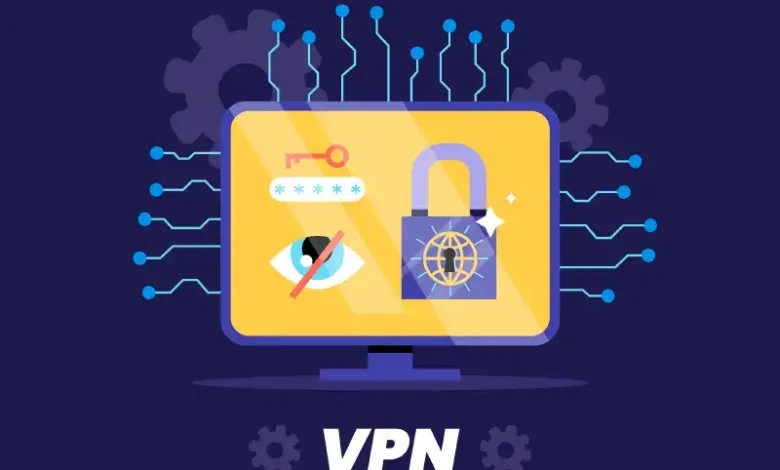How VPNs Keep Your Data Safe from Hackers: Your Complete Digital Security Shield

In today’s digital world, protecting personal information has become more challenging than ever before. Cybercriminals constantly develop new methods to steal sensitive data, making online security a top priority for internet users everywhere. Virtual Private Networks (VPNs) have emerged as one of the most effective tools for safeguarding digital assets and maintaining privacy online.
Understanding how VPNs protect data requires looking at the fundamental ways hackers operate. Cybercriminals often target vulnerable connections, intercept unencrypted data, and exploit weak security protocols to gain unauthorized access to personal information. This makes it essential for users to implement robust security measures, and platforms like vpnly.com provide comprehensive resources to help individuals choose the right protection for their specific needs.
The Digital Threat Landscape
Modern hackers employ sophisticated techniques to compromise user data. Public Wi-Fi networks, for instance, present significant risks because they often lack proper encryption. When someone connects to an unsecured network at a coffee shop or airport, their data becomes vulnerable to interception. Hackers can easily position themselves between users and connection points, capturing everything from login credentials to financial information.
Data breaches have become increasingly common, affecting millions of users annually. These incidents expose personal information, including names, addresses, phone numbers, and credit card details. Once this information falls into the wrong hands, it can be sold on dark web marketplaces or used for identity theft and financial fraud.
Man-in-the-middle attacks represent another serious threat. During these attacks, cybercriminals secretly intercept communication between two parties, allowing them to steal sensitive information or inject malicious content. Without proper protection, users remain unaware that their data is being compromised.
How VPNs Create Digital Fortresses
VPN technology works by creating encrypted tunnels between user devices and VPN servers. This encryption process scrambles data so thoroughly that even if hackers intercept it, they cannot read or use the information. The encryption standards used by reputable VPN services are military-grade, making them virtually impossible to break with current technology.
When users connect through a VPN, their internet traffic gets rerouted through secure servers located in different geographic locations. This process masks the user’s real IP address and location, making it extremely difficult for hackers to track their online activities or target them specifically.
The secure tunneling process ensures that all data transmitted between the user’s device and websites remains protected. Whether someone is checking email, making online purchases, or accessing sensitive work documents, the VPN maintains a protective barrier around their digital communications.
Advanced VPN services also implement additional security features like kill switches, which automatically disconnect users from the internet if the VPN connection fails. This prevents accidental data exposure during connection drops, maintaining protection even during technical issues.
Best Practices for Digital Asset Protection
Selecting the right VPN service requires careful consideration of several factors. Users should prioritize services that offer strong encryption protocols, have transparent privacy policies, and maintain no-logs policies. The reputation and track record of VPN providers matter significantly, as does their commitment to user privacy and security.
Regular software updates play a crucial role in maintaining security. VPN applications frequently receive updates that patch security vulnerabilities and improve protection mechanisms. Users should enable automatic updates whenever possible to ensure they always have the latest security enhancements.
Combining VPN protection with other security tools creates multiple layers of defense. Antivirus software, firewalls, and secure password managers work together with VPNs to create comprehensive protection against various types of cyber threats. This multi-layered approach significantly reduces the likelihood of successful attacks.
Users should also be mindful of their browsing habits and avoid suspicious websites or downloads, even when using VPN protection. While VPNs provide excellent protection against many threats, they work best when combined with smart online behavior and security awareness.
Emerging Trends in VPN Security
The VPN industry continues evolving to address new threats and user needs. Zero-knowledge architecture has become increasingly important, with providers implementing systems where they genuinely cannot access user data even if they wanted to. This approach provides maximum privacy protection and builds user trust.
Split tunneling technology allows users to route specific applications through VPN connections while allowing others to connect directly to the internet. This feature provides flexibility while maintaining security for sensitive applications and data.
Multi-protocol support has become standard among leading VPN services. Different protocols offer various advantages, from maximum security to optimized speed, allowing users to choose the best option for their specific needs and circumstances.
Advanced threat detection capabilities are being integrated into modern VPN solutions. These systems can identify and block malicious websites, prevent malware downloads, and warn users about potentially dangerous connections before they occur.
The Future of Digital Privacy
As cyber threats continue evolving, VPN technology adapts to meet new challenges. Quantum-resistant encryption methods are being developed to prepare for future computing advances that might threaten current security standards. This forward-thinking approach ensures that VPN protection remains effective against emerging threats.
The integration of artificial intelligence and machine learning into VPN services promises even better threat detection and prevention capabilities. These technologies can identify patterns and anomalies that might indicate cyber attacks, providing proactive protection rather than reactive responses.
For anyone serious about protecting their digital assets and maintaining online privacy, implementing VPN protection has become essential rather than optional. Platforms like vpnly.com offer valuable guidance for choosing appropriate VPN services and implementing effective security strategies.
The investment in proper VPN protection pays dividends through enhanced security, privacy protection, and peace of mind in an increasingly connected world. As digital threats continue growing in sophistication and frequency, having robust VPN protection provides the security foundation necessary for safe online activities.




